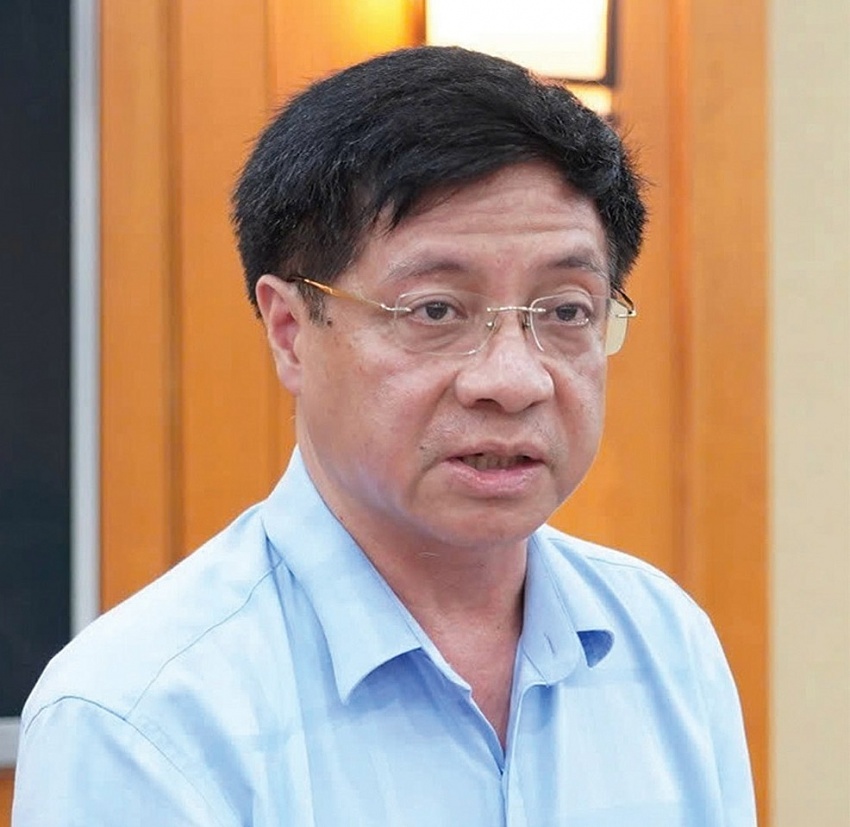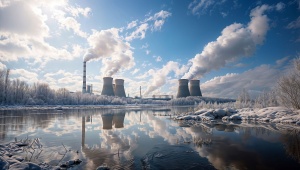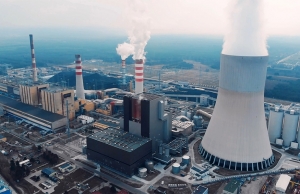Nuclear power project restart can support Vietnam’s long-term net-zero commitments
In the context of combating climate change and balancing CO2 emissions according to Vietnam’s commitments, a green transformation in the power sector is essential. Many countries are moving towards nuclear power combined with renewable energy to achieve this goal.
 |
| Pham Quang Minh, Ddputy director, Vietnam Atomic Energy Institute, Ministry of Science and Technology |
Nuclear power plays a crucial role in providing baseload energy, ensuring reliability and stability in the power system. It emits almost no CO2, with emissions comparable to hydropower and wind power, making it an important power source in the energy mix of many countries in the near future.
Proposals to restart nuclear power projects in Vietnam align with the country’s sustainable energy development policies, energy security goals, and commitments to reducing carbon emissions, as part of achieving carbon neutrality by 2050.
Nuclear power is viewed as a key solution to ensuring energy security, especially as Vietnam faces a sharp increase in electricity demand. Alongside renewable energy sources, nuclear power can help balance energy supply, ensuring long-term stability for the economy and society.
In the event of restarting nuclear power projects, it is critical to apply advanced nuclear technologies and adhere to the highest safety standards. Developing nuclear power will not only ensure energy security but also foster the growth of high-quality workers, contributing to the nation’s development.
Furthermore, nuclear power development offers opportunities to drive scientific and technological advancements, particularly in nuclear engineering and radiation technology. These technologies have applications in medicine, agriculture, industry, and environmental resources, while also boosting fundamental industries vital to national development, such as mechanical engineering, measurement, automation, chemical technology, and metallurgy.
Nuclear power requires long-term preparation, typically spanning 12-15 years. This involves training personnel, building capacity in nuclear technology and safety, developing a robust regulatory system, and preparing the necessary infrastructure for project implementation. Capacity building in science, technology, and project management is also essential.
Establishing early policy frameworks and preparation are critical factors for the successful implementation of nuclear power projects.
Vietnam’s nuclear power workforce is rapidly shrinking. Over the past 50 years, approximately 1,000 nuclear power personnel have been trained, with around 400 new personnel trained between 2005 and 2020. However, many of these trained professionals are now working in unrelated fields, representing a significant loss of talent.
To avoid this waste, Vietnam needs an initiative to retrain and strengthen its nuclear workforce in line with state directives. A clear policy on nuclear power is necessary to achieve this.
Moreover, Vietnam is gradually losing its active and effective cooperation in nuclear energy, particularly nuclear power, with key countries such as the US, South Korea, Japan, France, India, and Russia. It is therefore crucial to re-establish these cooperative relationships to promote human resource training, technology research, nuclear safety, and national capacity building, enabling the successful implementation of a nuclear power programme if Vietnam decides to pursue it.
While the development of a nuclear power initiative is challenging, a successful scheme could elevate the country’s scientific, technological, and industrial capacities, driving economic growth and enhancing national potential. The experience of many countries around the world has shown that the benefits of nuclear power development are substantial.
 | Vietnam exploring nuclear energy development The government has directed the Ministry of Industry and Trade (MoIT) to study nuclear energy practices from other countries to propose its development in Vietnam. |
 | A nuclear focus for energy security Amendments to the Electricity Law set out policies on nuclear power development, with a proposal for the state to have a monopoly in investing in the construction of nuclear power plant projects. |
What the stars mean:
★ Poor ★ ★ Promising ★★★ Good ★★★★ Very good ★★★★★ Exceptional
 Tag:
Tag:
Related Contents
Latest News
More News
- Trung Nam-Sideros River consortium wins bid for LNG venture (January 30, 2026 | 11:16)
- Vietnam moves towards market-based fuel management with E10 rollout (January 30, 2026 | 11:10)
- Envision Energy, REE Group partner on 128MW wind projects (January 30, 2026 | 10:58)
- Vingroup consults on carbon credits for electric vehicle charging network (January 28, 2026 | 11:04)
- Bac Ai Pumped Storage Hydropower Plant to enter peak construction phase (January 27, 2026 | 08:00)
- ASEAN could scale up sustainable aviation fuel by 2050 (January 24, 2026 | 10:19)
- 64,000 hectares of sea allocated for offshore wind surveys (January 22, 2026 | 20:23)
- EVN secures financing for Quang Trach II LNG power plant (January 17, 2026 | 15:55)
- PC1 teams up with DENZAI on regional wind projects (January 16, 2026 | 21:18)
- Innovation and ESG practices drive green transition in the digital era (January 16, 2026 | 16:51)






















 Mobile Version
Mobile Version